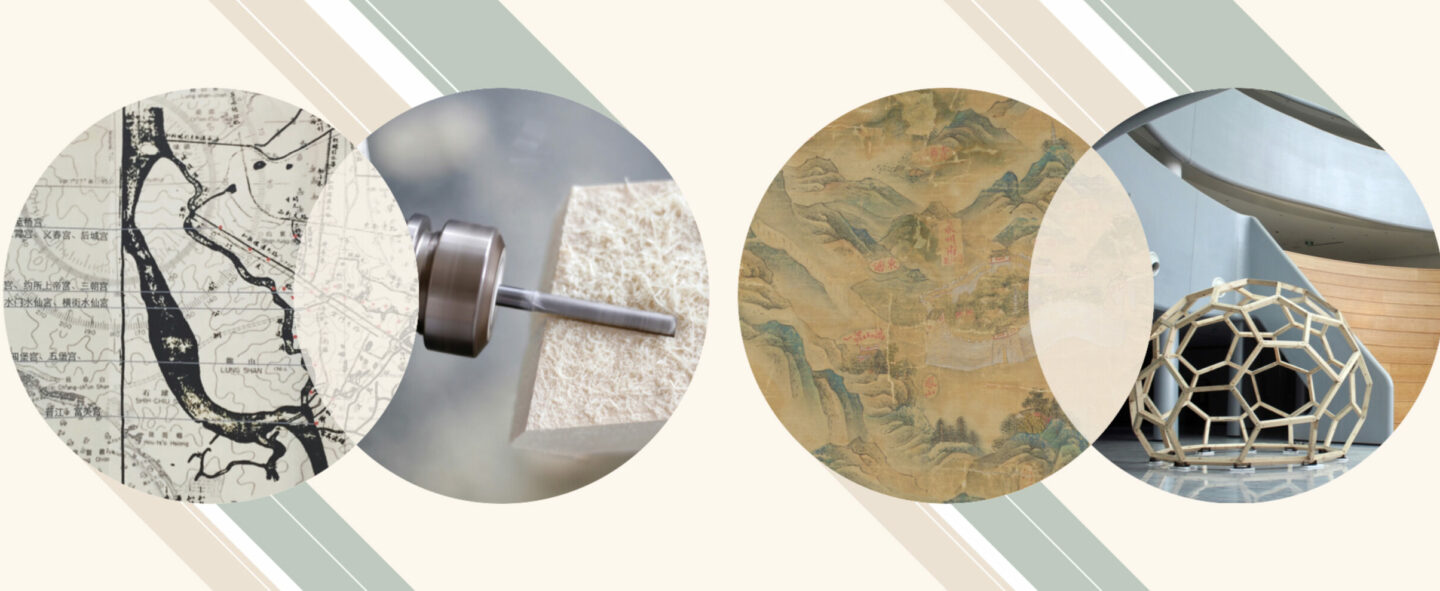
Language: English
For the 7th Café des Sciences Lecture on July 18th, you will have the opportunity to connect with two young architects graduated from ETH Zurich and have a glance at two interdisciplinary research fields of architecture studies: architectural anthropology and digital fabrication. Yifan Wang, Lecturer at Southeast University will focus on the history and share her research project on the urban community of the ancient city of Quanzhou while Hao Hua, Associate Professor in Architecture at Southeast University – will look into the future and share his insights into computational design.
Presentation
Consulting the Genius of the Place: A Guide to Zayton


The concept of ‘genius loci’ in contemporary architecture usually refers to a location’s distinctive atmosphere, or a ‘spirit of place’. In Roman mythology however the genius loci was the protective spirit of a place. Similarly in Chinese popular religion, the god of each of its smallest territorial divisions was simply known as the ‘Locality God’.
Throughout China’s late imperial period, an integrated system of urban socio-spatial divisions called ‘pujing’ (literally meaning ‘wards and boundaries’) was practiced in the city of Zayton (Quanzhou). Pujing was a spatial organization of both territorial cults and local administration. Each locality had its own sacred territory of a ‘genius loci’ on which a temple was sited and divinity was manifested.
Yifan’s research into Pujing includes new critical perspectives introduced by anthropology into global architectural history, which take seriously the need to investigate the hidden logic in everyday life. The juxtaposition of different types of pujing temples acts in the notion of ‘modern archaeological discoveries. It reveals the traces of a spatial concept that essentially has interacted with Chinese people for a long time but is now newly exposed to transmutation in the modernized urban context, helping to delve deeper into the everyday transactions of places when they become de-familiarized.
Speaker
Yifan Wang is an architect and researcher. She is a lecturer of the Architecture School at Southeast University. Having graduated from Tsinghua University with B.Arch, she studied at Institute for the History and Theory of Architecture (gta), ETH 2015 to 2016. She holds a PhD from Tsinghua University. Her areas of interest are architectural ethnography, ‘modernology’ and historic preservation. Her works were exhibited at the UrbanismArchitecture Bi-City Biennale of Shenzhen and Hong Kong and Art Book in China 2017.

Presentation
Mathematics for Design, Making and Phantasie


The new millennium has witnessed the digital turn in architecture as a watershed in the history of design, making and innovation. Computational design, coupled with digital fabrication, does not only rationalize the architectural design but also cultivate new imaginations. In contrast to the superstition that the digital trend calls for cutting-edge software, Prof. Hua reveals that the digital design & manufacturing can be grounded on the “old” mathematics, especially Descartes’s coordinate system, Arthur Cayley’s matrix, and Riemann’s differential geometry. By creating an interface between mathematical formulations and computer numerical control (CNC) machines, one can make an infinite series of bespoken products. This new-old method provides a vast design space for people to explore. Based on this insight, Prof. Hua’s recent works include a variety of artifacts, sculptures, and pavilions.
Speaker
Hao Hua is an Associate Professor in Architecture at Southeast University. He received the Dr.sc. degree from ETH Zurich, at Prof. Ludger Hovestadt’s Chair of Computer-Aided Architectural Design. Since 2014, he works at the Institute of Architectural Algorithms and Applications at Southeast University, Nanjing. His research focuses on computational design and digital fabrication. He was awarded the ALGODeQ Vanguard Prize in 2014 for algorithm development. In 2016, he initiated the javakuka.com for programming KUKA robots in Java. His works were exhibited in International Exhibition on Architectural Algorithms & Applications, Nanjing 2016 and China International Robot Show (CIROS) Shanghai 2018.

Rundown
18:00-18:30 Registration
18:30-18:35 Welcome Speech
18:35-19:00 Presentation – Consulting the Genius of the Place: A Guide to Zayton
by Yifan Wang, Architect and Researcher at Southeast University
19:00-19:25 Presentation – Mathematics for Design, Making and Phantasie
by Hao Hua, Associate Professor in Architecture at Southeast University
19:25-19:45 Discussion
19:45-20:00 Q&A Session
20:00-21:00 Networking Reception
Co-organized with

![]()
With a complex of distinctive spaces, NEXTMIXING is a newly founded place in the heart of Shanghai. We are committed to spatial experimentation and extraordinary experience production. The mission of NEXTMIXING is to present, plan and curate various kinds of cultural activities of extraordinary quality, in order to stimulate enjoyment, excite the imagination, and nurture creativity. NEXTMIXING celebrates creativity and the imagination, with the conviction that meaningful engagement with culture, music, performance, education and art enriches lives, opens minds, and deepens understanding.
Special thanks to


Café des Sciences
Shanghai | Every third Thursday each month 2019
Café des Sciences is a new format at Swissnex in China offering a monthly platform for Swiss Spotlight Scientists and Start-ups to present their projects and connect with the local community. The lectures will offer a casual setting in which speakers can present their work and engage with the attendees during a Q&A period. The audience is welcome to enjoy the networking reception with Swiss flavour after the talk. The lecture is scheduled to take place every third Thursday each month at Swissnex in China or our partner spaces.